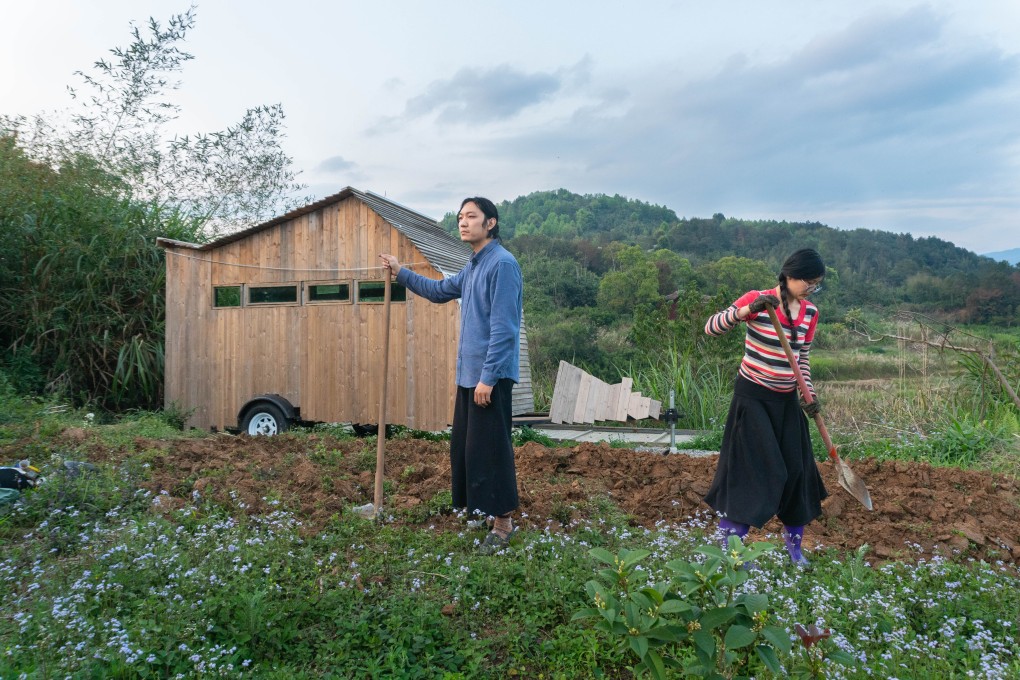China’s new communes: self-sustainability in Fujian province
- Disillusioned with the trappings of late-stage capitalism, ‘Another Community’ is building a different way of life in the countryside
- Its members are not political, but influenced by environmental and holistic ideals, and the work of a turn-of-the-century conservationist

On a narrow dirt path, soft with morning dew, Tang Guanhua brushes through dense thicket. “When we first arrived, there was no path, nothing,” says the 30-year-old, clad in all-black baggy cotton trousers and a cardigan, breaking off some newly grown bamboo branches. “It was all overgrown, we had to clear the land and build these trails. It took a lot of time and effort.”
Sounds of a nearby village’s crowing roosters and puttering motorcycles recede with each stride though this verdant tunnel. Tang stops and surveys a clearing vista of rolling hills overgrown with purple wildflowers, ferns and rhododendron. Mist rolls down the sides of the framing mountains, into the valley, where deciduous trees hide myriad chirping birds, and only a keen eye can spot the traces of human existence, also, and very purposefully, hidden here.
“This,” says Tang, “is our land.”
Since 2015, Tang and his wife, Xing Zhen, have been living in a reclusive, mountainous part of Minhou county, in southeastern Fujian province, about two hours’ drive from the capital, Fuzhou. Joined by a small band of like-minded Chinese, most in their early 30s, they have turned their backs on city life to form “Another Community”.

Other, older, more successful self-sufficient communes in mainland China count at least 100 members. Tang’s Another Community numbers about a dozen, and some don’t live here full time as they cannot yet sustain themselves without working odd jobs. From a children’s book designer to a public-health expert, a filmmaker to a Cisco security expert, members used to grind out a living in the mainland’s megacities, which Tang describes as “a homogenous, single-minded value system”. The commune, on the other hand, formulates its goals by committee. It is aiming for 30 residents by the end of 2020, 150 by 2030 and 300 by 2036.
Laying the foundation, Tang and Xing believe, is the most arduous part. “In the future, with enough people, we can do everything ourselves,” Xing says.